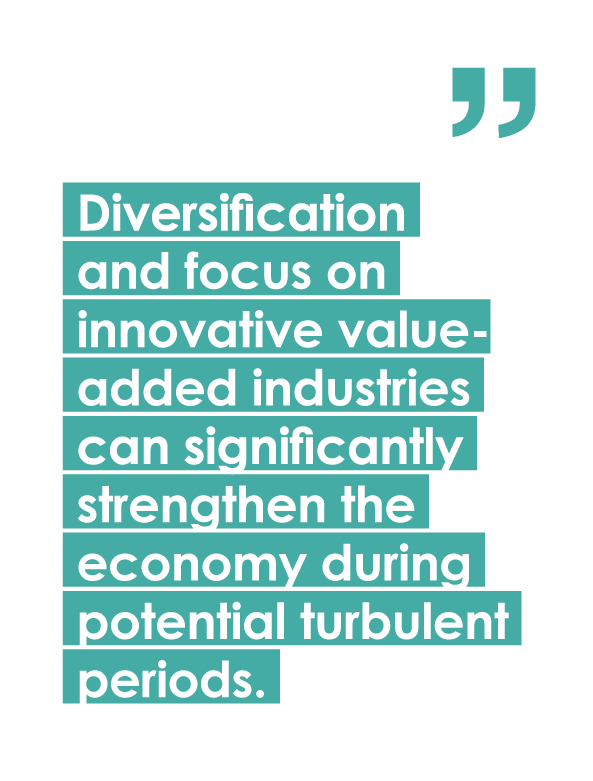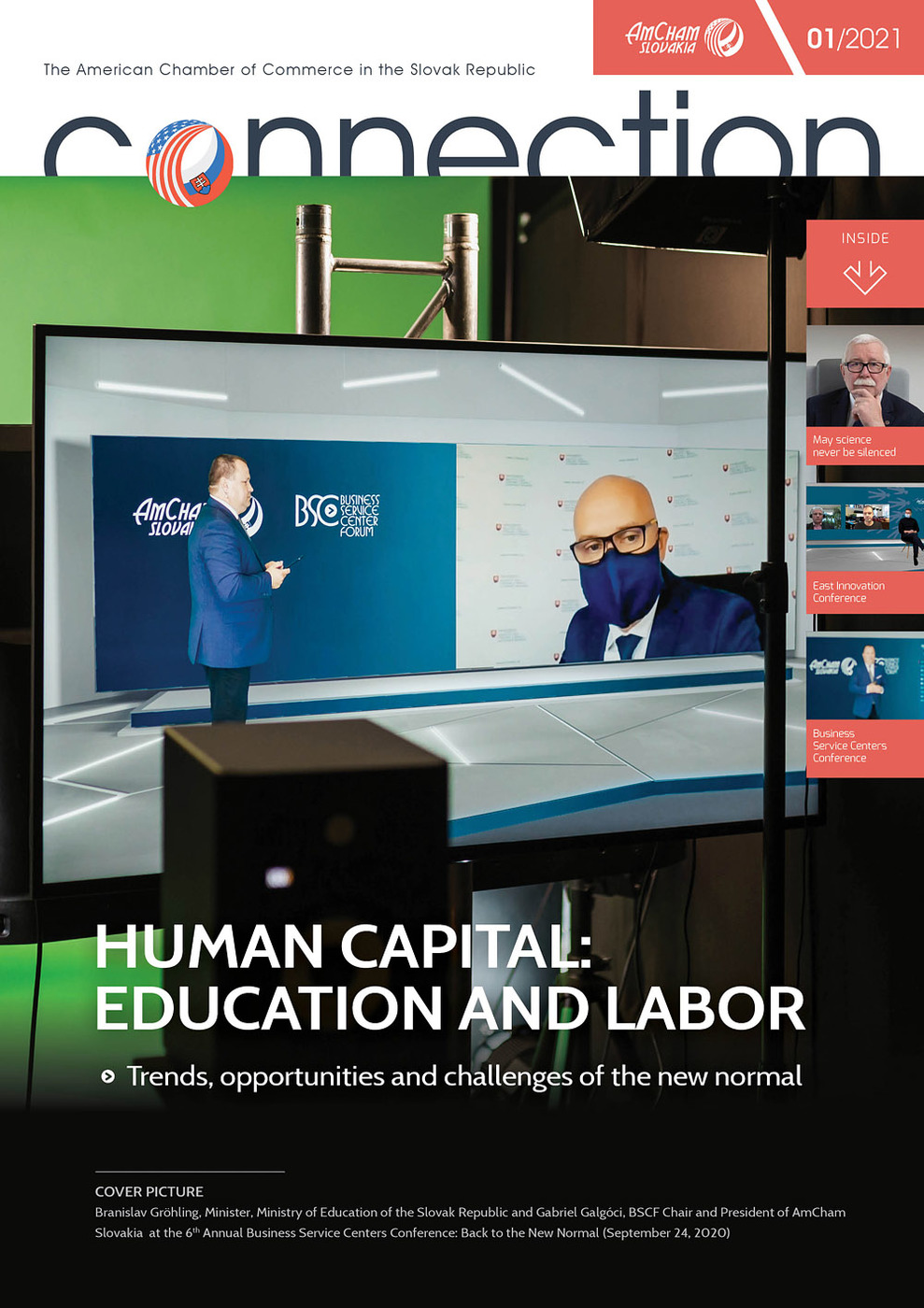Let’s start with a few important facts. According to surveys, more than 300,000 people live outside Slovakia (IFP) and when it comes to studying abroad, this trend is still growing. The Institute of Educational Policy of the Ministry of Education of SR estimates that from 12% of graduates in 2012 who went to study abroad, the number increased to 18% in 2018, putting Slovakia second place in the OECD behind Luxembourg. In addition to the demographic effect, it also has economic consequences, and it is appropriate to address the issue in a broader context.
The interest of state institutions to address the topic actively has been on the rise, specifically through dialogue with partners in the private and non-profit sectors. In addition to the organizations that have been dealing with it for a long time (LEAF), AmCham and business entities also perceive the importance of the topic. Efforts to find a solution culminated in the creation of a working group at the level of the Office for Slovaks Living Abroad, which is currently preparing a new concept of state policy in relation to Slovaks abroad, and in which AmCham is also represented. For the first time, it also deals with return policy. The functioning of communities is changing as they are no longer tied only to expatriate organizations. An important element of the functioning of communities, according to the survey, is that the more often Slovaks meet other Slovaks abroad, the stronger their will to return.
The statistics also show us that the group of the most talented and best students (evaluated according to study results) studying abroad remains there after completing their studies. The departure of talents and specialists subsequently causes companies a problem in finding quality people on the Slovak labor market. Initiatives by the private sector, such as Cisco Networking Academy, which since its inception in Slovakia helped almost 50 thousand Slovak students in acquiring skills most needed in the tech industry, can only solve a part of this problem.

At the same time, Slovakia is one of the countries with the lowest immigration rates. The lack of talent is reflected, for example, in the decision-making processes of private companies, which then move organizational units with higher added value (such as development centers) to other countries. In the long run, Slovakia is in danger of being dependent on the automotive industry. Combined with unpredictable events such as the current Covid crisis, this can have a very significant impact on economic performance.
Companies can easily calculate the efficiency of production in a country, and when there is no added value, the decision to move to another country can be made very quickly. Better conditions in other countries will suffice. In addition, there is a significant decline in other sectors and we have an economic problem. Diversification and focus on innovative value-added industries can significantly strengthen the economy during potential turbulent periods. The innovative environment has a multiplier effect, and will attract other companies and talents, that will expand the whole ecosystem. Fortunately, there are great examples of innovation coming from Slovakia, like the tech company Slido recently acquired by Cisco. One can hope that this is a sign of new things to come.
But for now, a lot of talent is leaving Slovakia and so far there is no comprehensive strategy how to prevent it. However, the situation is changing thanks to the cooperation of various sectors. Among the working groups of the draft concept, one is reserved for return policy. However, it is necessary to note openly that return policy has not yet clearly established its position and now is the best time to do so. At present, the policy of Slovaks living abroad is primarily represented by the Office for Slovaks Living Abroad, which is also responsible for return policy. However, return policy spans several departments and the question arises as to whether it should not be coordinated at the level of the Government office of the Slovak republic. That could help unite all departments within state policy and at the same time connect the private and non-profit sectors.
One of the most competent non-profits in the field of return policy and the general formation of civil society in Slovakia is LEAF. LEAF is also behind the “Vráť sa” project, which is also supported by AmCham. Currently, LEAF is also actively involved in the preparation of a platform with the working title “Slovak Global Network”, which aims to further advance and actively address the topic of “brain drain”. The platform also aims to map the community of Slovaks abroad and give them the opportunity to actively participate in the formation of their home country. Cooperation is a key factor which can bring a multiplier effect. Only joint coordination can reach the community through various communication channels.
The world is becoming more and more globalized and new generations already perceive Slovakia and patriotism in a different way than their compatriots who left Slovakia decades ago. Meetings within expatriate communities are gradually disappearing and with the exception of a few traditional and strong expatriate communities, it can very quickly happen that if we do not create a comprehensive strategy, we will lose contact with Slovaks abroad.
Despite the clear benefits of living in the European Union where borders are disappearing and the possibility of realization becomes increasingly independent of where we are, we still see our nationality, building civil society and a sustainable and innovative economy as one of our key priorities. That is why it is important to give people the opportunity to gain experience, but on the other hand, to create the conditions of a modern society in Slovakia, where our citizens will want to return and fulfill their dreams and ambitions at home. The issue of brain drain is important because the quality of life ultimately affects everyone who leaves, but also those who remain.
Martin Maštalír, Area Manager, CISCO Systems Slovakia; and AmCham Board Member



Follow us